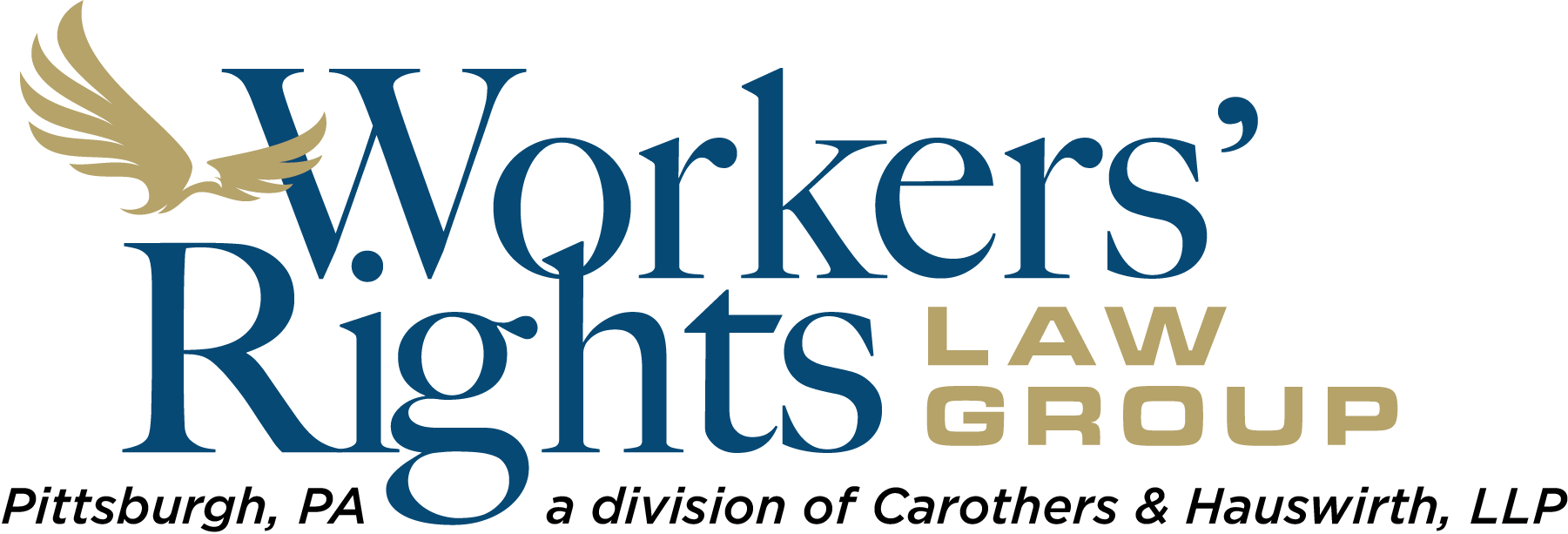State and Federal Court Litigation
The attorneys at the Workers’ Rights Law Group litigate cases across the entire Commonwealth of Pennsylvania from the state county courts to the federal district courts. This ensures that you have access to justice anywhere in the Commonwealth and that our team offers the expertise needed to Protect the Workers at every turn.
The path to getting your day in court is nuanced. Often, it involves first the Equal Employment Opportunity Commission (“EEOC”) or the Pennsylvania Human Relations Commission (“PHRC”). However, other circumstances allow you to pursue your workplace rights immediately in the courts. This is all dictated by the laws implicated by the facts of your scenario. Discrimination cases arising under laws such as the Pennsylvania Human Relations Act, Title VII of the 1964 Civil Rights Act, the Age Discrimination in Employment Act of 1967, and the Americans with Disabilities Act of 2008 require “administrative exhaustion” before a lawsuit can be filed in court. In layman’s terms, this means that an individual must proceed through the process administered by the PHRC or the EEOC before a complaint can be filed in state or federal court.
Both the Position and Rebuttal Statements are critical documents in your case. They contain statements made by the respective party that can later be used for cross-examination or impeachment purposes during a deposition. Scrutinizing these documents for both factual and legal inaccuracies is important or you risk subjecting your case to vulnerabilities down the road.
The length of time that the administrative-exhaustion process takes varies. Some cases are eligible and undergo mediation whereas other cases will spend a significant amount of time in the investigation stage. In rare instances, the EEOC will make a finding of discrimination and offer to litigate the case on your behalf. At the culmination of the PHRC or EEOC process, you will be issued a Notice of Dismissal and Right to Sue letter. This allows you or your attorney to draft and file a complaint in state or federal court for your anti-discrimination causes of action.
There is a stringent 90-day time limitation for the filing of your complaint. It is paramount to bring the Notice of Dismissal and Right to Sue letter to the Workers’ Rights Law Group at your earliest opportunity or you risk losing the ability to pursue your case.
Filing the anti-discrimination lawsuit prior to exhausting your administrative remedies risks your case being dismissed before it can proceed into the court system. This scenario will not only have the effect of forfeiting your fees spent to file and serve the complaint but will also have cost you precious time; time you needed to properly preserve your case.
The facts and laws pled at the administrative level govern the scope of conduct that can be subsequently raised in state and federal court litigation. The Workers’ Rights Law Group can ensure that all relevant facts and laws are properly pled at all levels and that no claim is overlooked.
Cases arising under laws governed by the Department of Labor – like the Fair Labor Standards Act or the Family and Medical Leave Act – or their analogous state counterparts often do not require administrative exhaustion. This means that your claims can be filed after a properly pled complaint is drafted and signed.
Many times, an individual has claims arising under both anti-discrimination and wage laws. Therefore, some of their claims are authorized to proceed immediately in state or federal court litigation while other claims require “administrative exhaustion”. Further, the statute of limitations, the period of time to which a lawsuit can be brought, is constantly ticking. Ensuring all claims are properly preserved is paramount. The attorneys at the Workers’ Rights Law Group are adept at maneuvering the procedural and legal mechanisms to ensure your claims are prosecuted properly and expeditiously.
CALL TODAY TO SCHEDULE A FREE CONSULTATION
Once it is procedurally proper to bring a lawsuit, a determination must be made as to where the complaint can be filed. There are significant differences between litigating in state or federal court and careful thought must be exercised in identifying which courts have jurisdiction over the case and which offer the appropriate venue. It is not the individual’s prerogative to determine which courts possess jurisdiction – that lies in the court’s intrinsic power to hear the case.
Pennsylvania state courts are courts of original jurisdiction which means they have the power to hear all types of cases arising under Pennsylvania or federal law. Federal courts, on the other hand, are courts of limited jurisdiction and the facts or laws underlying your case must imbue the federal court specifically with jurisdiction. Not all situations support both state and federal court jurisdiction. Further, poor planning or pleading at the administrative stage can jeopardize your ability to file the complaint in either court and avail yourself of your rights under certain laws.
Although state and federal courts both serve to adjudicate your rights, the courts operate by different procedural and local rules that drastically influence how your lawsuit proceeds. Anyone appearing in state or federal court must comply with the nuanced minutiae of the procedural and local rules of that court. These rules apply to not only the substantive laws at issue, meaning the laws that govern your case, but also the proper methodology for pleading and filing documents for your case. Failing to comply with any set of rules appropriate in court not only affords the defense attorney a significant advantage but can also be fatal to your claim.
Venue is a separate and distinct component of the legal process outside of the court’s jurisdictional power to hear the lawsuit. Venue is the proper county or district where a case can be tried and is determined by statute.
The nuances of jurisdiction and venue are of significant import to your lawsuit. The attorneys at the Workers’ Rights Law Group will identify the appropriate courts based on the factual circumstances of the case and will discuss with you the landscape of proceeding at the state or federal level.
Once your case is ripe for state or federal court, you must draft and file the “complaint.” A complaint is the primary mechanism to which a lawsuit is initiated. A properly pled complaint is the most important tool at the plaintiff’s disposal. However, properly pleading a complaint is an arduous task that takes time, experience, and knowledge of not only the laws involved but also of the civil justice system as a whole. A complaint is composed primarily of the facts, laws, and damages unique to your case. At a high level, the “facts” component involves the sequence of events relevant to your claim. The “laws” component includes not only all of the various overlapping state and federal laws triggered by your employer’s conduct but also the precise manner in which the laws were violated. Properly pleading this component is the most precarious component of your case and failing to properly plead the manner in which the laws were violated risks having your case thrown out before trial. Finally, the “damages” section is the measure of relief you seek to be made whole for the misconduct you were forced to endure.
Once venue and jurisdiction are identified and the complaint is drafted and filed, litigation and the vindication of your rights formally commences. At this juncture, you are on the path to finally getting your day in court. And the team at the Workers’ Rights Law Group will be with you every step along the way.

Foster Plaza 10, 680 Andersen Drive, Suite 230, Pittsburgh, PA 15220
2500 Plaza 5, 25th Floor, Harborside Financial Center, Jersey City, NJ 07311
Powered by Uconvert Marketing
© 2022 WORKERS’ RIGHTS LAW GROUP • ALL RIGHTS RESERVED

